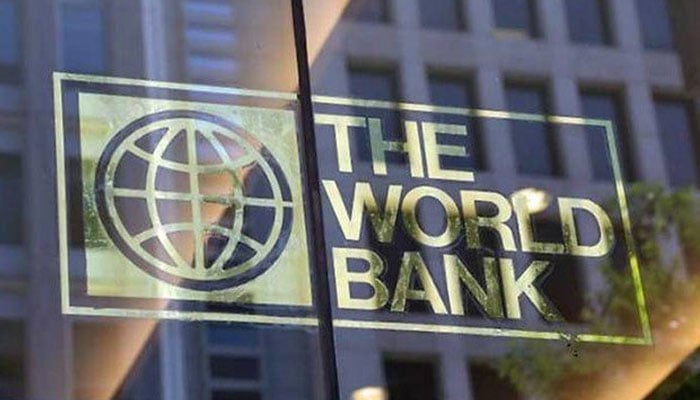Pakistan receives $1bln from World Bank, ADB
KARACHI: Pakistan has received $1 billion in financial support from World Bank and Asian Development Bank (ADB), which will help the country combat the coronavirus pandemic and mitigate its socioeconomic impact, the central bank said on Wednesday.
“SBP has received $1 billion today with $500 million each from ADB and WB,” the central bank said in a tweet.
Last week, the government signed loan agreements worth $1.5 billion with the World Bank, ADB and Asian Infrastructure Investment Bank to strengthen its response to the COVID-19 pandemic.
Analysts said the country's foreign exchange reserves will get a boost due to the fresh disbursements from the multilateral lenders and allow it to have fiscal space to fight the spread of the virus.
“This $1 billion would be recorded as an inflow in the financial account (not in the current account),” said Zeeshan Azhar, an analyst at Foundation Securities. “The balance of payments position would also improve.”
The inflows are also likely to strengthen the rupee against the dollar. The rupee fell 2.8 percent or Rs4.55 against the dollar since the start of June due to falling foreign exchange reserves and increasing outflows amid foreign debt repayments, analysts said. Dollar inflows through bilateral multilateral sources may give some support to rupee in July, they said. The central bank’s foreign exchange reserves came under pressure recently due to external debt repayments. The State Bank of Pakistan’s (SBP) reserves fell to $10.1 billion as of June 12 from $12.3 billion on May 8.
The disbursements from the two multilateral financial institutions have pushed the country’s foreign exchange reserves up to $17.77 billion from $14.76 billion as of June 30, 2019. The reserves held by the SBP increased to $11.107 billion from $7.280 billion as of end-June last year.
Pakistan’s economic outlook for the next fiscal year remains gloomy due to slowdown in growth and large budget deficit.
The country’s gross domestic product is expected to contract 0.4 percent in the current fiscal year, which will be the first time since fiscal year 52.
The decline in the GDP is likely because of fall in the industrial output as a result of business closures amid coronavirus-related lockdown. Total GDP target for FY2021 is set at 2.1 percent. Budget deficit is expected to shoot up to clock in at 9.2 percent of GDP in FY2020. The deficit is estimated at 7 percent of GDP in the next fiscal year. Inflation to average at 10.7 percent in FY2020 would decline further to 6.5 percent next year.
-
 Nicole Kidman Celebrates Galentine’s Day Months After Keith Urban Split
Nicole Kidman Celebrates Galentine’s Day Months After Keith Urban Split -
 Justin Bieber Unveils Hailey Bieber As First Face Of SKYLRK In Intimate Campaign Debut
Justin Bieber Unveils Hailey Bieber As First Face Of SKYLRK In Intimate Campaign Debut -
 Caitlin O’Connor Says Fiance Joe Manganiello Has Changed Valentine’s Day For Her
Caitlin O’Connor Says Fiance Joe Manganiello Has Changed Valentine’s Day For Her -
 Rachel Zoe Sends Out Message For Womne With Her Post-divorce Diamond Ring
Rachel Zoe Sends Out Message For Womne With Her Post-divorce Diamond Ring -
 James Van Der Beek's Final Conversation With Director Roger Avary Laid Bare: 'We Cried'
James Van Der Beek's Final Conversation With Director Roger Avary Laid Bare: 'We Cried' -
 Jaden Smith Walks Out Of Interview After Kanye West Question At Film Premiere
Jaden Smith Walks Out Of Interview After Kanye West Question At Film Premiere -
 Why Halle Berry Wasn't Ready For Marriage After Van Hunt Popped Question? Source
Why Halle Berry Wasn't Ready For Marriage After Van Hunt Popped Question? Source -
 Michelle Obama Gets Candid About Spontaneous Decision At Piercings Tattoo
Michelle Obama Gets Candid About Spontaneous Decision At Piercings Tattoo -
 Bunnie Xo Shares Raw Confession After Year-long IVF Struggle
Bunnie Xo Shares Raw Confession After Year-long IVF Struggle -
 Brooks Nader Reveals Why She Quit Fillers After Years
Brooks Nader Reveals Why She Quit Fillers After Years -
 Travis Kelce Plays Key Role In Taylor Swift's 'Opalite' Remix
Travis Kelce Plays Key Role In Taylor Swift's 'Opalite' Remix -
 How Jennifer Aniston's 57th Birthday Went With Boyfriend Jim Curtis
How Jennifer Aniston's 57th Birthday Went With Boyfriend Jim Curtis -
 JoJo Siwa Shares Inspiring Words With Young Changemakers
JoJo Siwa Shares Inspiring Words With Young Changemakers -
 James Van Der Beek Loved Ones Breaks Silence After Fundraiser Hits $2.2M
James Van Der Beek Loved Ones Breaks Silence After Fundraiser Hits $2.2M -
 Disney’s $336m 'Snow White' Remake Ends With $170m Box Office Loss: Report
Disney’s $336m 'Snow White' Remake Ends With $170m Box Office Loss: Report -
 Travis Kelce's Mom Donna Kelce Breaks Silence On His Retirement Plans
Travis Kelce's Mom Donna Kelce Breaks Silence On His Retirement Plans




